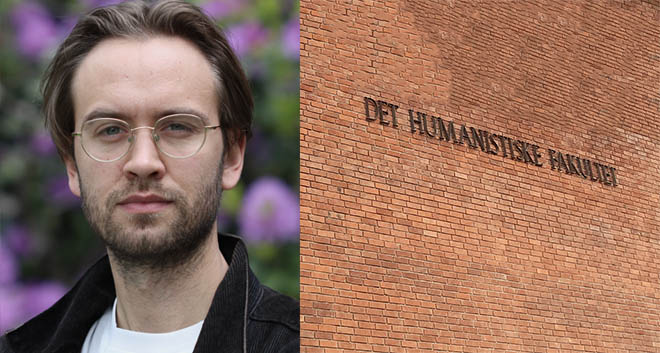
How have scientists and technocrats in the climate field made sense of a future subject to politics? A new dissertation shows how timing matters in the conduct of climate science.
"For a long time, climate science has been a form of futures studies," says Emil Flatø. "When the experts began to unite in concern about human-induced climate change, they had to deal with the fact that the theorized changes lay decades into the future."
Human-induced confusion
Flatø's dissertation, When Science Could Not Wait: Climate, Experts, and the Times of Anthropogenic Change, 1945-1979, explores how science made a possibly catastrophic futures, subject to human actions and politics, an object of knowledge. This work was centered in the Cold War US, crossing boundaries between academic, corporate, military, and state institutions.
"It is important to understand how profoundly the notion of anthropogenic changes challenged scientific dogma. As in most fields today, scientists sought empirical evidence for their claims; what is more, several earth sciences had considered human impacts negligible in explanations of planetary dynamics. In the encounter with human influences such as accumulating fossil fuel emissions, new methods, new epistemologies, new forms of evidence, new constellations of experts, and new interfaces between science and politics emerged. Today’s science-based international governance regime for climate change builds on these developments," Flatø says.
Computed evidence
Computerized research became central to the scientific approach to anthropogenic futures.
"In 1957, the oceanographer Roger Revelle famously declared that humanity has embarked on a “large geophysical experiment”. Less famously, he was writing a grant proposal advocating that the experiment be adequately documented, through measures like the Mauna Loa observatory’s atmospheric carbon monitoring. The “experiment” would run its course; Revelle did not imagine science having agency over it. 30 years later, the climate modeler William Welch Kellogg rejected the “experiment” as morally untenable," says Flatø. "Kellogg believed it was a moral necessity to use computer modeling to simulate unrealized times of the atmosphere."
Timing matters
As a whole, Flatø’s dissertation points toward a historiography of science which is more sensitive to the timing of knowledge. When did experts know what, what times do a claim refer to, and how is knowledge contingent upon historical context?
"Historians of climate science are busy explaining why knowledge about anthropogenic climate change was inadequate to achieving a climate politics that seems capable of averting catastrophic levels of warming," Flatø says. "I believe an essential issue is what knowledge it has been possible to build, and what knowledge has been necessary to share with the public and policy-makers, at different points in time of the now 50 year effort to mitigate climate change on the basis of knowledge about its risks. This is an unfamiliar way to think about knowledge: The ideal of timeless insight is alive in many fields."
The need for temporalities research
Flatø has pursued his doctoral research as a member of the project Lifetimes: A Natural History of the Present, led by Professor Helge Jordheim and financed by the Norwegian Research Council. The project is part of new strands of research on multiple temporalities in the humanities and social sciences, a field that has blossomed alongside a growing sense of crisis in the study of climate and environments.
"Climate change entangles histories about plant- and animal life, fossilization and petroleum formation, centuries of extractive politics, and a planning horizon where it is no longer defensible to postpone costly emission cuts; on time scales ranging from the geological to the millisecond," Flatø says. "Grappling with these kinds of time clashes will require more work on multiple temporalities. Everything from historiography to bureaucratic planning is profoundly affected by climate change."
Emil Flatø successfully defended his dissertation on 12 May 2023.
Trial lecture
Designated topic: "What were the futures without computers? Non-informatics based trajectories of the future in the long post-war, United States 1945 to 2000"
Evaluation committee
Professor Sverker Sörlin, KTH Royal Institute of Technology (first opponent)
Dr. Bernard Dionysius Geoghegan, King’s College London (second opponent)
Professor Brita Brenna, University of Oslo (committee administrator)
Chair of the defence
Professor Einar Wigen
Supervisors
Professor Helge Jordheim, University of Oslo
Professor Geoffrey C. Bowker, University of California